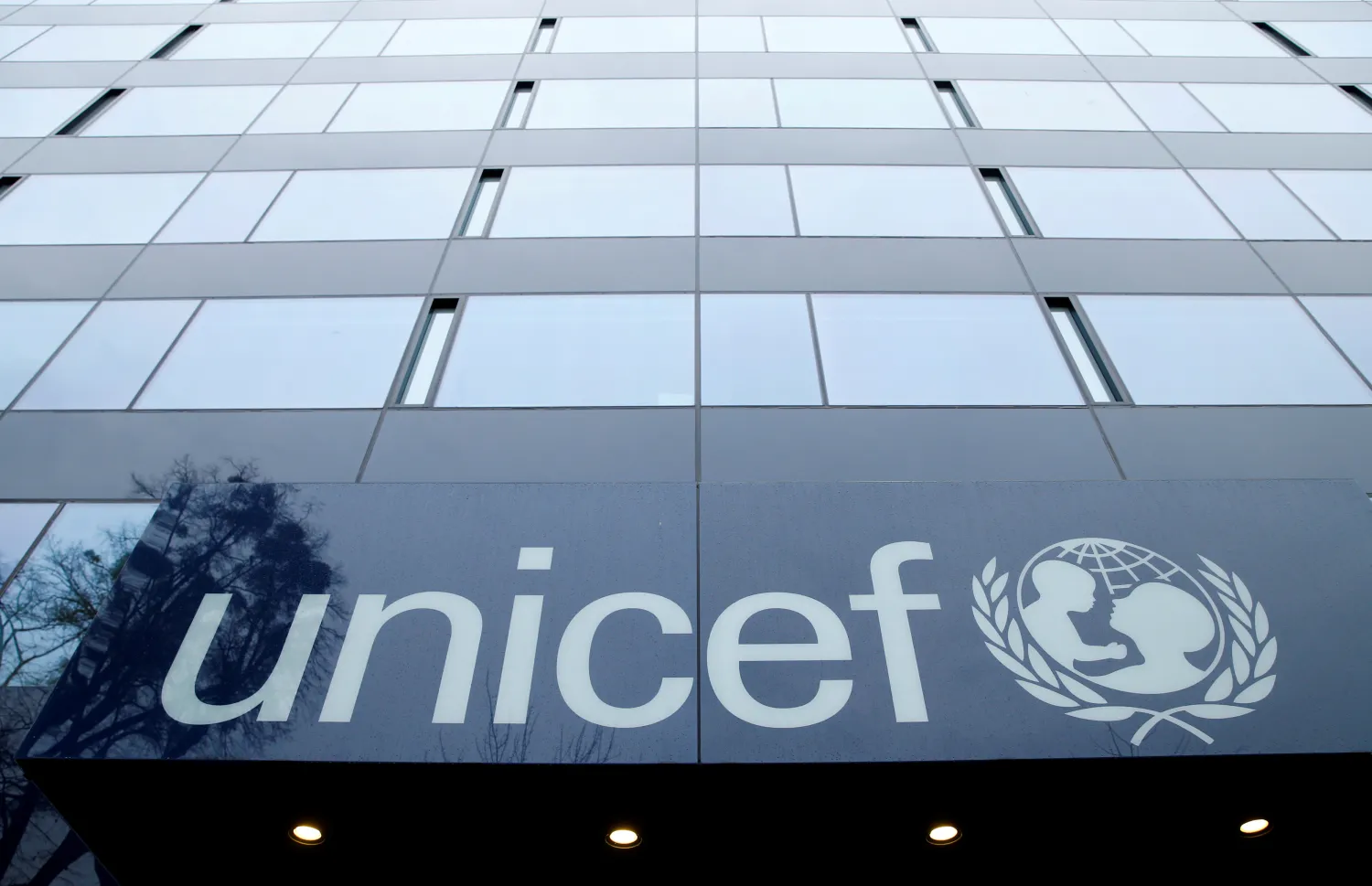Children held in a prison in northeast Syria that witnessed 10 days of fighting between US-backed fighters and ISIS militants are living in “incredibly precarious” conditions and they should not have been there in the first place, the UN children’s agency said Sunday.
UNICEF added that the agency is ready to help support a new safe place in Syria’s northeast to take care of the most vulnerable children, some of whom are as young as 12. Its statement came a day after a visit by one of its teams to the prison in the northeastern city of Hassakeh.
The UNICEF team said after visiting some children at the prison in the city of Hassakeh on Saturday that they have lived in dire conditions at the detention center for years and in January “witnessed and survived heightened violence” in and around the prison.
The visit came two days after ISIS’s top leader, Abu Ibrahim al-Hashimi al-Qurayshi, was killed in a US raid on his safehouse in northwest Syria. President Joe Biden said al-Qurayshi had been responsible for the Syria prison assault.
Over 3,000 inmates, of which some 600 are children, are held at the Hassakeh prison, known as Gweiran or al-Sinaa.
“Despite some of the basic services now in place, the situation of these children is incredibly precarious,” Bo Viktor Nylund, UNICEF's Syria representative, said in the statement.
While boys were held separately from adults, the groups mixed when ISIS militants stormed the prison in a jailbreak on Jan. 20. Some inmates escaped, while others including child detainees were taken hostage in the ensuing battle.
Nylund said UNICEF is working to provide safety and care for them while calling on all stakeholders to urgently find long-term solutions in the best interests of the children.
He said UNICEF is ready to help support a new safe place in Syria’s northeast to take care of the most vulnerable children, some of whom are as young as 12.
At a press conference on Jan. 31, the US-backed and Kurdish-led Syrian Democratic Forces said they had retaken control of the prison and confirmed that 77 prison employees, 40 Kurdish fighters and four civilians were killed, alongside 374 ISIS detainees and attackers.
The SDF provided no breakdown of the dead detainees, or how many of them were children.
The Associated Press quoted Nylund as saying that destruction in the surrounding area of the prison is significant with destroyed homes affecting an estimated 30,000 people. He said every effort, including by the Syrian government and local authorities, to provide immediate assistance should be supported.
“Children should never be in detention due to association with armed groups,” Nylund said. “Children associated with and recruited by armed groups should always be treated as victims of conflict.”
He said UNICEF calls for the immediate release of children in all detention centers across northeast Syria and for handing them over to child protection agencies. He said UNICEF calls on member states of foreign children to repatriate them.
For years, some countries have refused to repatriate detained children in Syria while Kurdish authorities have expressed concern they may have extremist tendencies.
“UNICEF stands ready to facilitate the speedy and systematic repatriation of foreign children and the reintegration of children in Syria to their communities of origin,” Nylund said. He added that the pace of repatriation and integration of children stranded in Syria “is far too slow. This is unacceptable.”
On Friday, Human Rights Watch said hundreds of boys are missing from the fighting in and around the prison.









